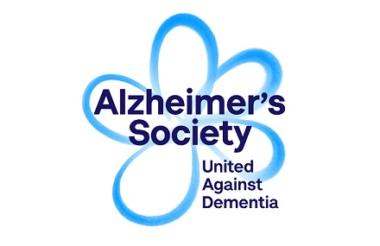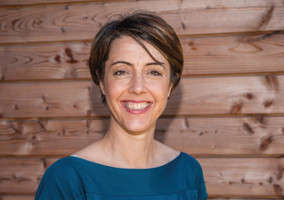The Charity Commission has said it is now looking into a complaint about the Alzheimer’s Society which it failed to respond to in 2018, after details were reported on the front page of the Guardian on Saturday.
According to a whistleblowing complaint reported online by the Guardian on Friday afternoon, Alzheimer’s Society has spent up to £750,000 on payouts to staff who agreed to sign non-disclosure agreements. It suggests the NDAs may have been used to silence staff accusations about bullying.
Alzheimer's Society has said this figure is inaccurate and that it only used settlements for “legitimate reasons” where other options for resolution have been explored.
The charity added that it has “a zero tolerance of bullying and discrimination”.
Jeremy Hughes, Alzheimer’s Society’s chief executive, also tweeted that he was “deeply concerned” by the allegations.
Deeply concerned byGuardian article. I champion a positive working culture expecting high performance of all to make a difference for people affected by dementia. 91% @alzheimerssoc staff proud to work here. I take any complaints very seriously - we investigate these thoroughly.
— Jeremy Hughes (@JeremyHughesAlz) February 21, 2020
Commission failed to follow up complaint in 2018
A complaint was made to the Commission in February 2018 about the charity’s approach to dealing with staff grievances. The Commission has admitted that it failed to follow up on the complaint at the time, but is now investigating the matter.
Helen Earner, director of operations at the Commission, said: “We received a complaint about the Alzheimer’s Society in February 2018, detailing concerns about the charity’s approach to dealing with staff grievances, including the extent to which the trustee board was aware of and overseeing decisions appropriately.
“Whilst this was at a time when the volume of cases coming into us was high, nevertheless we should have followed up on the complaint, and that did not happen. We have since overhauled our handling of whistleblowing reports. Regardless of the nature or seriousness of concerns raised, we follow up each whistleblowing report with a phone call to the complainant.
“We acknowledge that in failing to follow up on the complaint at the time, we did not meet the high standards we set ourselves, and which the public rightly expect. We are now looking into the matter.”
Alzheimer’s Society said that it had not been contacted about the 2018 complaint made to the Commission until it was approached by The Guardian.
New role for chief executive
In January, suicide prevention charity Samaritans announced that Hughes would become its next chief in May.
He had announced his departure from the Alzheimer's Society in September 2019, and in December 2019 the charity announced that Kate Lee from CLIC Sargent would become its next chief executive from April.
At the time Alzheimer’s Society said that his departure was not related to claims of bullying, which were made on social media via an anonymous Twitter account, which has subsequently been deleted.
The whistleblowing account said it had been set up by a group of employees “with significant concerns about the Society’s leadership”, and was urging others to come forward with their stories.
The charity said it had put in place an action plan to deal with poor staff survey results.
Three-quarters of the charity's 2,211 staff responded to the survey. The charity’s “Workplace Engagement Score” had fallen by 4 percentage points to 56 per cent, which was nine points behind the benchmark median.
Leadership was the lowest scoring topic overall, receiving a score of 38 per cent. The report described this as “performing poorly”.
Civil Society News has contacted the Samaritans this morning for comment. The charity said it was working on a response.
Alzheimer's Society: 'We take these allegations very seriously'
In a statement, Alzheimer's Society said it was taking the latest allegations seriously.
Corinne Mills, director of people and organisational development at Alzheimer’s Society, said: “We were not aware of the complaint made to the Charity Commission until we were contacted by The Guardian and we have never been contacted by the Charity Commission in relation to this complaint. We are following this up directly with the Charity Commission, as we take these allegations very seriously and have a zero tolerance of bullying and discrimination.
“We have a well-established and robust internal complaints procedure and whistleblowing policy - all complaints are thoroughly investigated to support and protect our employees and volunteers who raise concerns, including providing independent, open access to our Board of Trustees and Chair.
“We strongly refute the figure of £750,000 quoted for settlements. We have only used settlement agreements for legitimate reasons and only where other options for resolution have been explored. We haven’t used any settlement agreement to stop anyone reporting any whistleblowing, harassment or discrimination complaints.
“We regularly review all our processes, involving our Employee Forum in this. We are using the new ACAS guidance so that we are following best practice and that all our employees are supported to manage the usage appropriately.
“A positive working culture is important to us. We regularly seek out employees’ views – our recent annual engagement survey showed that 91 per cent of staff and volunteers are ‘proud’ to work here”.
ACEVO: The charity sector should take the lead on tackling bullying
Commenting on the news, a spokesperson for the chief executives' body ACEVO said: “Last year ACEVO and the Centre for Mental Health released In Plain Sight, which looked at bullying behaviour in the charity sector.
“The report contained a recommendation for the Charity Commission to clarify its role and response to dealing with complaints of bullying. We were told action would be taken to address this recommendation but this has not yet taken place.
“The report also recommended that charity leaders come together to initiate a sector-wide discussion about how to address bullying and create healthier, happier workplace cultures. ACEVO has begun this work and is committed to doing more but additional resource is required in order to meet the scale of our ambition.
“Bullying unfortunately takes place in all sectors, but we want the charity sector to take the lead in tackling it.”
Editor's note: 26 February
The sentence relating to the announcement of Jeremy Hughes' departure from Alzheimer's Society has been amended because when the announcement was made the charity said it was not connected to the claims on social media, but does not feel it was "forced to deny".
|
Related Articles











